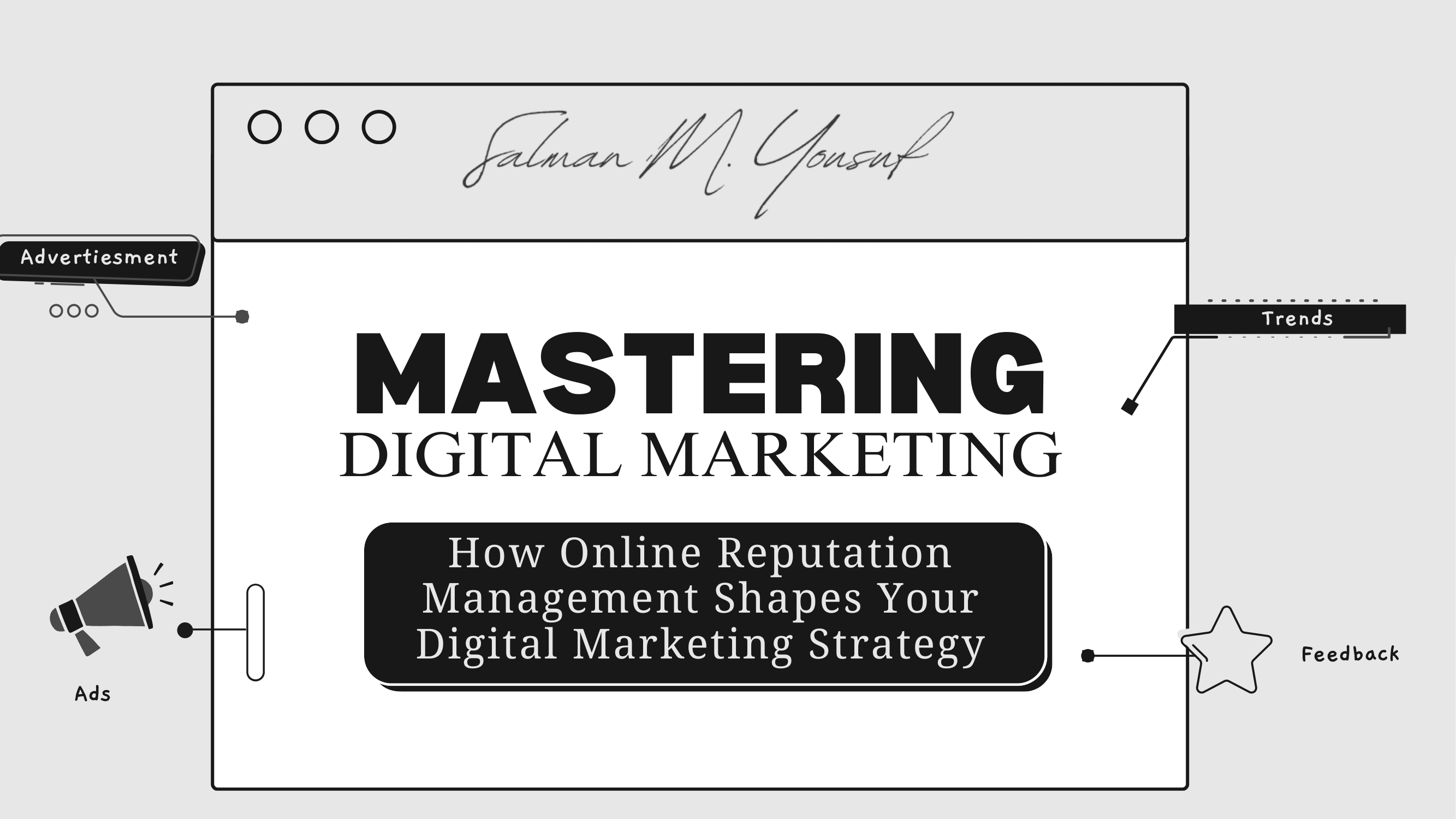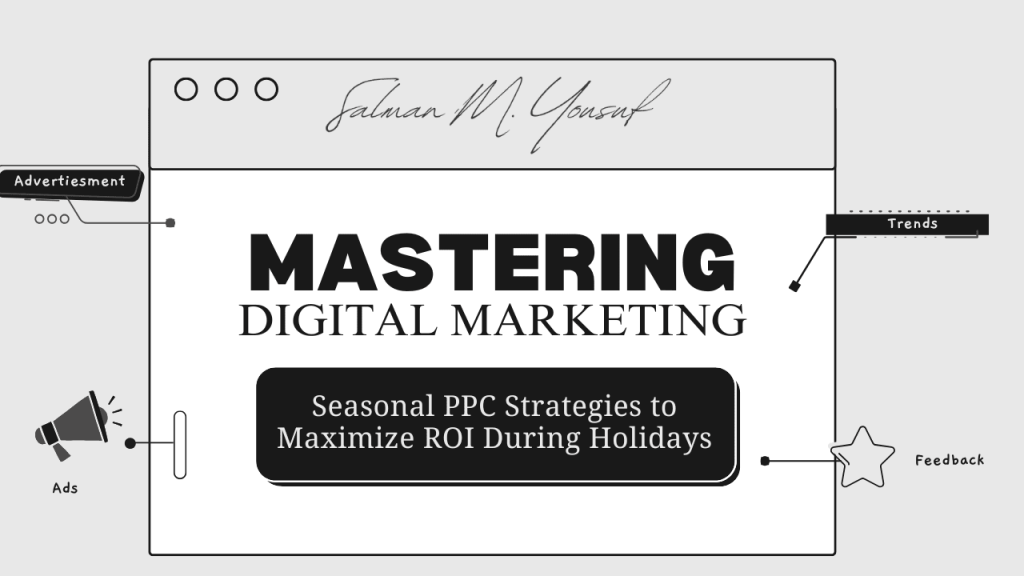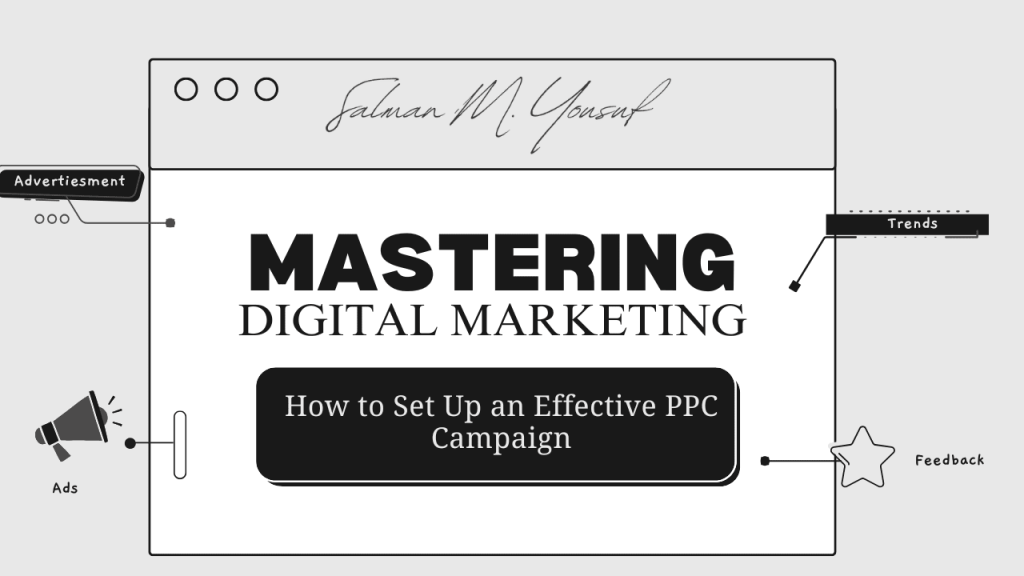This stat shows how important managing online reputation is for businesses in 2025 and beyond. Online presence is one of the primary contributing factors that define success. Thus, managing your digital reputation is not just optional, it’s essential.
A lot of businesses are now opting for an ORM service agency because they understand how it helps shape the brand image and contributes to the success of marketing strategy. We are living in an era where people rely on online reviews and make decisions based on what others have experienced.
Customers don’t even engage with a business if they have poor reviews. Ask yourself, when was the last time you decided to purchase a product or service from a business that had a rating of 3 stars or lower?
The online reputation is the bloodline of a business. It’s what drives customer trust and amplifies credibility. It may come as a surprise to you that ORM also enhances digital marketing strategies.
In this blog post, I will unravel how managing your digital footprint improves your marketing game. By the end, you will have a clear understanding of how you can leverage ORM to improve your brand image and achieve better marketing results.
Are ORM and Digital Marketing Connected?
In a study, Reputation X revealed that 58% of Fortune 500 executives believe online reputation management should be a core part of every organization’s marketing and branding strategy.
Wondering why? Customers’ perception about your brand is influenced by your online content. If you have hundreds of positive reviews and a strong online presence, people will be confident while engaging with your business.
ORM practices also include monitoring social media and addressing negative feedback promptly. By integrating ORM with digital marketing efforts, businesses can enhance their SEO rankings which helps increase customer trust and drive higher engagement rates. This synergy safeguards the brand’s image which leads to sustained growth and a competitive advantage in the digital landscape.
Another benefit you get by investing in online reputation management is that you will be able to keep a tab on other brands and your target audience. Once you have a better understanding of the latest happenings, your digital marketing services provider will be able to tweak your marketing strategy accordingly and stay ahead of your rivals.
Why Manage Your Online Reputation
Managing the online reputation of your business is essential to keep your brand’s image intact in today’s digital landscape. Although ORM is a broad term, it can be easily explained in 3 simple components:
Monitoring: Active monitoring of brand mentions across various platforms to identify any negative or false conversation revolving around your business is a major part of ORM. This ensures you stay informed about public perception and can address issues before they escalate.
Mitigation: This involves implementing proactive steps to guard your brand’s reputation in the digital space. This includes creating positive content, engaging with customers and highlighting your strengths to build a rock-solid online presence.
Managing: Lastly, taking action to handle any negative or inaccurate reports effectively is also a part of managing your online reputation. This involves responding to reviews, correcting misinformation and resolving customer complaints to restore trust and credibility.
By systematically monitoring, mitigating and managing your online presence, you can protect your brand from potential damage, build stronger relationships with your audience and make your marketing campaigns a soaring success.
5 Ways ORM Fuels Your Digital Marketing Strategy
Digital marketing and online reputation management serve different purposes, but both are linked. Marketing your brand will help you with brand awareness and sales but ORM on the other hand is important to make sure your brand image is clear. Not just that it also amplifies the result of your marketing endeavors. Here’s how:
Boosts Credibility + Trust
A strong online reputation builds credibility and trust among potential customers. Positive reviews and testimonials showcased through ORM efforts reassure visitors about your reliability and quality. Thus, it will be easier for trustworthy brands to convert leads into customers as consumers prefer engaging with businesses, they feel confident in. By consistently keeping an eye on your reputation, you will be able to create a trustworthy image that supports all the marketing initiatives of your digital marketing services provider.
Improves SEO Performance
Online reputation management directly impacts your SEO performance. Search engines prioritize brands with positive mentions, reviews, and high-quality content. Once you start to manage your reputation, you will observe a huge increase in the volume of positive content and backlinks which will help you rank better. Higher visibility in search results drives more organic traffic to your website which will increase the ROI of your digital marketing campaigns. Further, a strong online presence helps you stay competitive in search engine rankings.
Supports Social Media Strategies
Online reputation management also helps you with social media strategies. By monitoring your brand mentions across platforms like Facebook, Instagram, TikTok and LinkedIn, you will be able to engage more and respond to feedback right away. Positive interactions and timely responses improve your brand’s image and encourage more followers and engagement. Also, understanding public sentiment through some ORM tools allows you to tailor your social media content to better resonate with your audience which makes your campaigns more impactful.
Elevates Customer Retention Rate
Maintaining a positive online reputation helps in retaining existing customers. Wondering how? ORM efforts ensure their experiences are acknowledged and valued. Effective online reputation management involves addressing customer concerns promptly and showcasing your commitment to customer satisfaction. Satisfied customers are more likely to stay loyal and continue purchasing from your brand. High retention rates reduce churn and increase lifetime value which actually serves as a stable foundation for your digital marketing efforts. Plus, you will be able to promote your business through positive word-of-mouth.
Better Customer Management
By investing in online reputation management, you will get valuable data about customer preferences and their behaviors. By analyzing feedback and reviews, you will be able to identify areas for improvement and tailor your products or services to better meet your customer needs. This approach improves customer satisfaction and loyalty. Further, understanding customer sentiments allows you to personalize your marketing messages which makes them much more impactful. So, better customer management through ORM leads to more targeted and successful digital marketing campaigns.
Top Tools to Manage + Monitor Your Online Reputation
Managing and monitoring your digital reputation is not an easy task. Luckily, there are several tools out there that you can use to discover what people are saying and where your brand currently stands. Here are some of the tried and tested tools that are worth trying:
Google Alerts: A free tool that allows you to monitor the search engine for new content mentioning your brand, competitors, or any keywords you want. It sends you email notifications whenever new results appear to help you stay informed about what’s being said online. It’s a great option for small businesses.
Hootsuite: It is a comprehensive social media management platform that lets you track brand mentions across multiple social media platforms from one dashboard. It provides analytics and scheduling features to help you engage with your audience and manage your online presence.
Brandwatch: Brandwatch offers advanced social listening and analytics features. It helps you understand public sentiment, track trends, and analyze conversations about your brand. With its detailed data visualization tools, Brandwatch enables you to make informed decisions to improve your online reputation.
Reputation: Another popular ORM tool is Reputation. It is widely recommended by marketers as it provides tools to monitor reviews and manage customer feedback. It’s a centralized platform to address negative reviews, showcase positive testimonials and enhance your overall brand image.
BuzzSumo: If you want a powerful tool for content analysis and monitoring, BuzzSumo is the best bet. It helps you identify popular content related to your brand, track mentions and analyze competitors’ strategies. With its insights, you can create more engaging content and boost your online reputation.
Using these can help you a lot in managing your online reputation and if you learn to use them the right way, there’s a chance that you might not even need an ORM service agency. However, you have to make sure that your goals align with the features of the tool you are opting for.
Conclusion
Online reputation management is crucial for the success of a digital marketing strategy. It shapes how your brand is perceived online. Now that you are well familiar with the link between ORM and the success of digital marketing campaigns, it’s time for you to pick a tool and start working on your digital footprint to drive sustainable growth and maximize the impact of your digital marketing initiatives.
However, starting on your own can be challenging but you don’t have to worry about that. I’m a certified and award-winning marketer who has helped countless brands counter online crises and maintain an online presence that’s a perfect ten. So, reach out to me today for a quick consultation or a bespoke ORM strategy.





